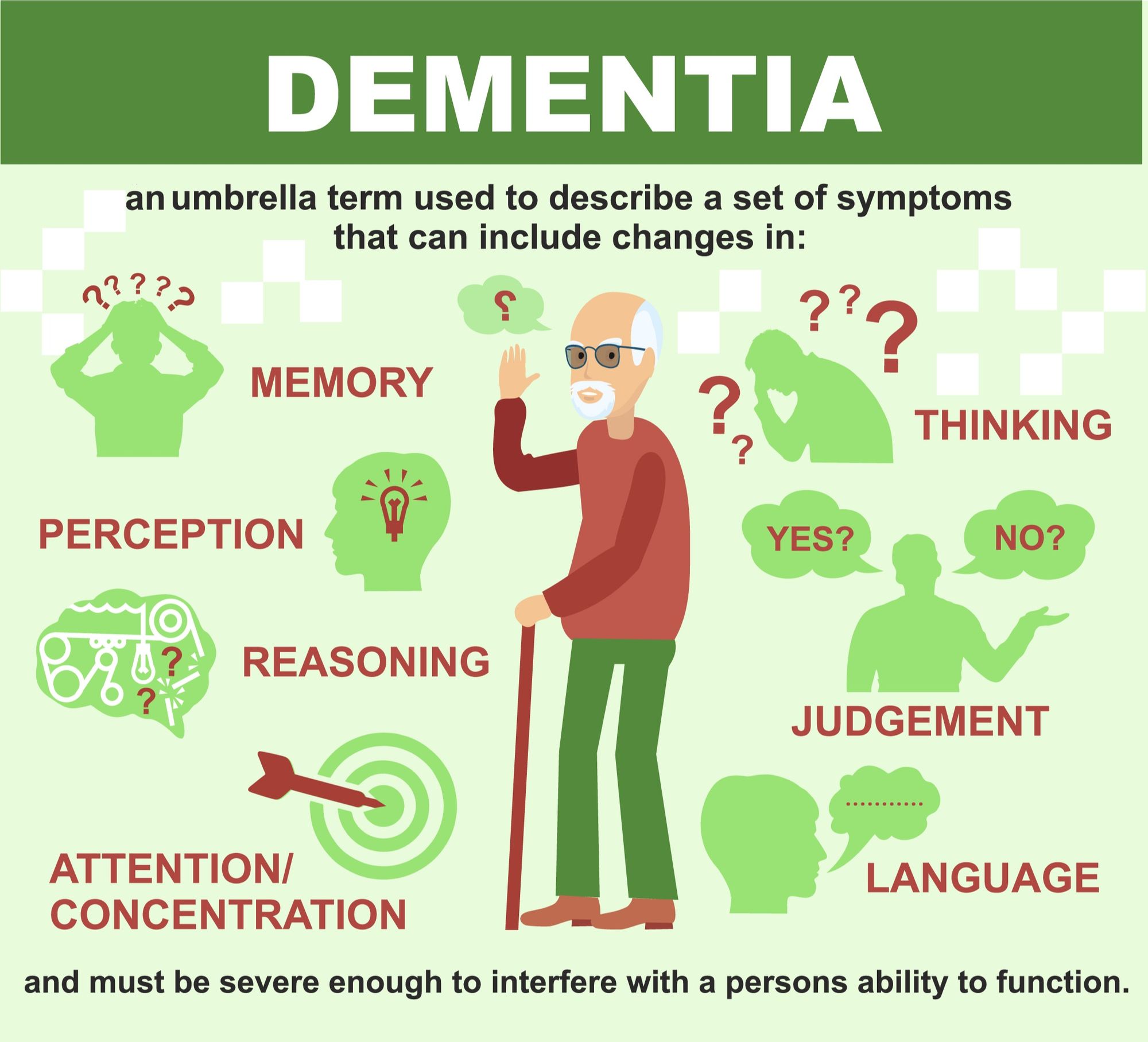Dementia is a general term for a group of progressive, neurodegenerative brain diseases that occur in older age. It is used to describe a group of symptoms that affect memory, thinking, and social skills to such an extent that your daily life is affected. It’s not a specific disease, but several diseases can cause dementia.
Although dementia is generally associated with memory loss, memory loss has different causes. Memory loss alone doesn’t mean you’ve dementia, although it’s often one of the first signs of the disease

Why does vitamin D play a vital role?
If older adults start taking vitamin D long before they have memory lapses, they could be at lower risk of developing dementia, a new study suggests. The study, published in Alzheimer’s and Dementia – the journal of the Alzheimer’s Association – found that higher levels of vitamin D in all four brain regions of the people tested were associated with a 25 to 33 per cent lower likelihood of developing dementia or mild cognitive impairment.

The study is significant because it shows for the first time how vitamin D is involved in cell signalling pathways that may be part of the neurodegenerative process. This is what one study says, and although this is encouraging, it needs to be tested on larger groups. Moreover, vitamin D should be taken only after consulting a doctor as toxic levels can lead to cardiac arrhythmias, say experts.
Experts in India said that although the study involved a small sample, it yielded significant results, and further research studies were needed. However, they warned against excessive intake of vitamin D supplements without medical advice.

The results of the research
The study adds to the accumulating evidence that nutritional strategies play a key role in delaying or preventing the onset of cognitive decline and dementia, either by directly influencing neuropathology or by promoting resistance to pathology.
One nutritional factor that has received much attention is vitamin D, an essential fat-soluble vitamin and pro-hormone that is absorbed through diet and sun exposure, according to the study researchers. Dr. Rajas Deshpande, director of neurology at Jupiter Hospital in Pune, said the findings were significant despite the small sample size as they suggest that there was less degeneration in the brain due to good vitamin D levels.
“It is encouraging to see so many developments in the field of dementia and the studies show many ways to stop the disease early, such as walking more, adding certain foods and walnuts to the diet and taking vitamin D supplements now.
However, it would not be advisable to start taking high doses of vitamin D on your own without consulting your doctor, as toxic levels can lead to heart arrhythmias,” he said. Moreover, while adequate vitamin D levels can slow down neurodegeneration, “a causal link between vitamin D and dementia needs to be established,” he added.
Dr. Anil Venkitachalam, consultant neurologist, at Kokilaben Hospital, Navi Mumbai, said vitamin D is associated with many neurological disorders. “Studies have clearly shown the role of vitamin D in multiple sclerosis. There is also evidence that low vitamin D levels are associated with stroke. In neurodegenerative diseases such as dementia, the exact causality is unclear. But the fact is that vitamin D has a neuroprotective effect and adequate vitamin D levels can slow neurodegeneration and prevent neuronal damage,” he says.
Read More: Diabetes & its Invisible Effects on the Kidneys and Brain













